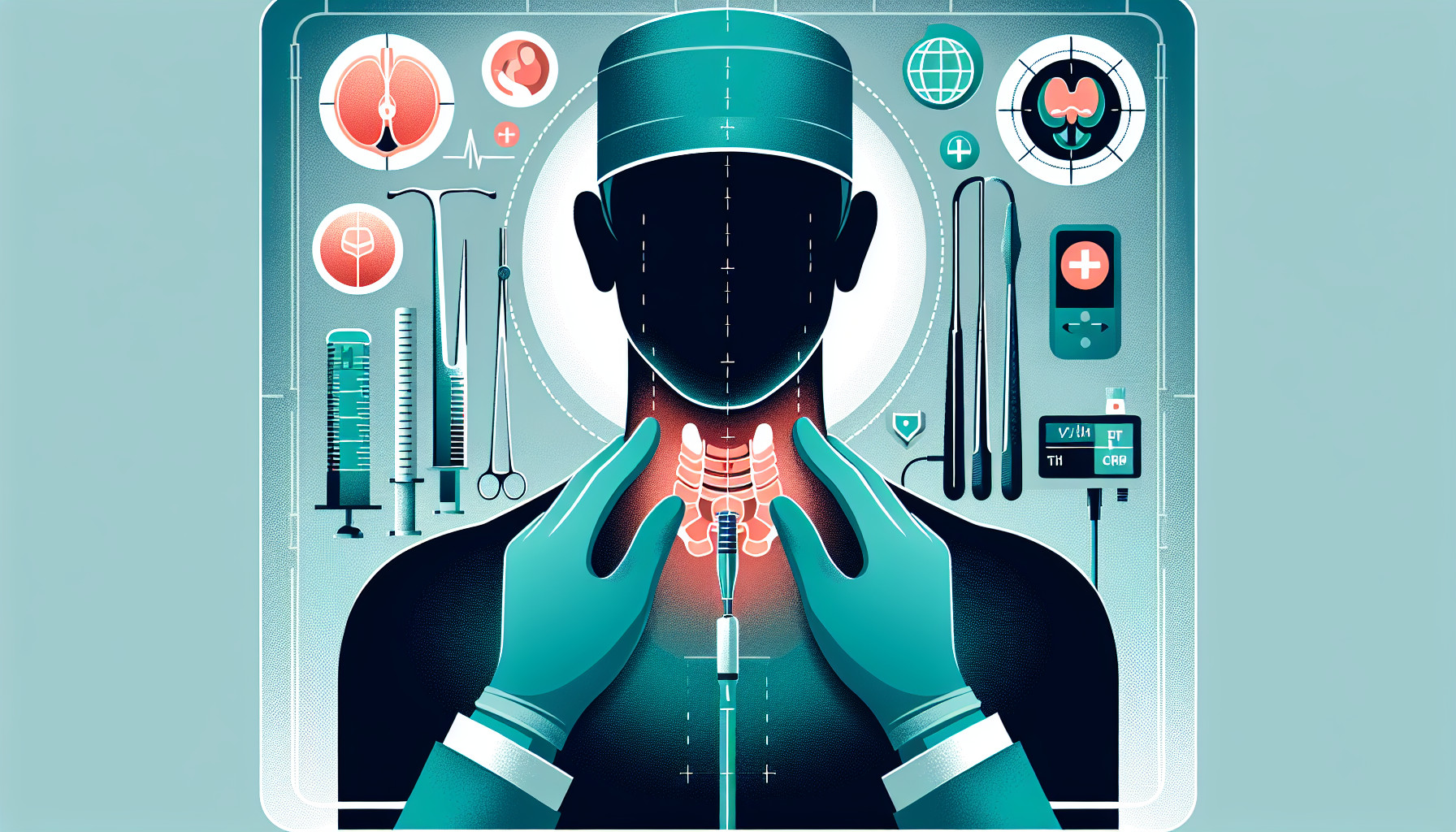Our Summary
This research paper investigates the effects of a surgical procedure called parathyroidectomy (removal of one or more of the parathyroid glands) on kidney function in patients with primary hyperparathyroidism, a condition where the parathyroid glands produce too much parathyroid hormone.
In the study, 381 patients who underwent this surgery between 2016 and 2021 were observed. Out of these, 135 patients who didn’t have a complete one-year follow-up or had missing data were excluded. The remaining 246 patients were divided into two groups based on their initial kidney function: those with a less than average kidney function (<60 mL/min) and those with normal or above-average kidney function (≥60 mL/min).
The researchers found that the group with less than average kidney function before the surgery showed a significant improvement in their kidney function 12 months after the surgery compared to the other group. Almost half of these patients also showed an improvement in their chronic kidney disease stage.
The study concludes that parathyroidectomy is more likely to improve kidney function in patients with lower initial kidney function. This supports the current guidelines recommending surgery for such patients.
FAQs
- What is the purpose of a parathyroidectomy surgery?
- How does parathyroidectomy affect kidney function in patients with primary hyperparathyroidism?
- Does parathyroidectomy improve kidney function in all patients or only in those with a lower initial kidney function?
Doctor’s Tip
One helpful tip a doctor might tell a patient about parathyroidectomy is to follow up with regular kidney function tests after the surgery to monitor any improvements or changes in kidney function. This can help ensure that the surgery was successful in addressing any issues related to the overproduction of parathyroid hormone and can help prevent any future complications related to kidney function. It is also important to follow any post-operative care instructions provided by the healthcare team to promote a smooth recovery process.
Suitable For
Patients who are typically recommended for parathyroidectomy include those with primary hyperparathyroidism, especially those with lower initial kidney function (<60 mL/min) and who are at risk for worsening kidney function. Patients with symptoms of hypercalcemia, such as bone pain, kidney stones, and fatigue, may also be candidates for this surgery. Additionally, patients with severe osteoporosis or fractures due to high levels of parathyroid hormone may benefit from parathyroidectomy. It is important for patients to undergo thorough evaluation and consultation with a healthcare provider to determine if parathyroidectomy is the best treatment option for their specific condition.
Timeline
Before Parathyroidectomy:
- Patient is diagnosed with primary hyperparathyroidism and undergoes testing to confirm the condition.
- Patient may experience symptoms such as fatigue, weakness, bone pain, and kidney stones due to high levels of parathyroid hormone.
- Endocrinologist recommends parathyroidectomy as a treatment option.
- Patient undergoes pre-operative testing and evaluation to assess their overall health and kidney function.
After Parathyroidectomy:
- Patient undergoes the surgical procedure to remove the affected parathyroid gland(s).
- Post-operative recovery period where patient is monitored for complications and given pain medication as needed.
- Follow-up appointments to monitor calcium and parathyroid hormone levels.
- Over the course of several months, patient may experience improvement in symptoms such as fatigue, weakness, and bone pain.
- One year post-surgery, patient undergoes follow-up testing to assess kidney function.
- Study shows that patients with lower initial kidney function may experience significant improvement in kidney function 12 months post-surgery.
- Patient may experience an improvement in their chronic kidney disease stage, if applicable.
- Overall, patient may have a better quality of life and reduced risk of complications associated with primary hyperparathyroidism.
What to Ask Your Doctor
Some questions a patient should ask their doctor about parathyroidectomy include:
- What are the potential risks and complications associated with parathyroidectomy surgery?
- How will my kidney function be monitored before and after the surgery?
- Will I need to make any lifestyle changes or take medications after the surgery?
- How long is the recovery period after parathyroidectomy surgery?
- What are the chances of my kidney function improving after the surgery?
- Are there any alternative treatments to consider for primary hyperparathyroidism?
- How experienced is the surgical team in performing parathyroidectomy procedures?
- What should I expect in terms of follow-up appointments and monitoring post-surgery?
- How soon can I expect to see improvements in my symptoms after the surgery?
- Are there any specific dietary or activity restrictions I should follow before or after the surgery?
Reference
Authors: Frey S, Wargny M, Blanchard C, Caillard C, Hadjadj S, Cariou B, Figueres L, Mirallié E. Journal: Surgery. 2023 Jan;173(1):146-153. doi: 10.1016/j.surg.2022.05.038. Epub 2022 Sep 24. PMID: 36167701
